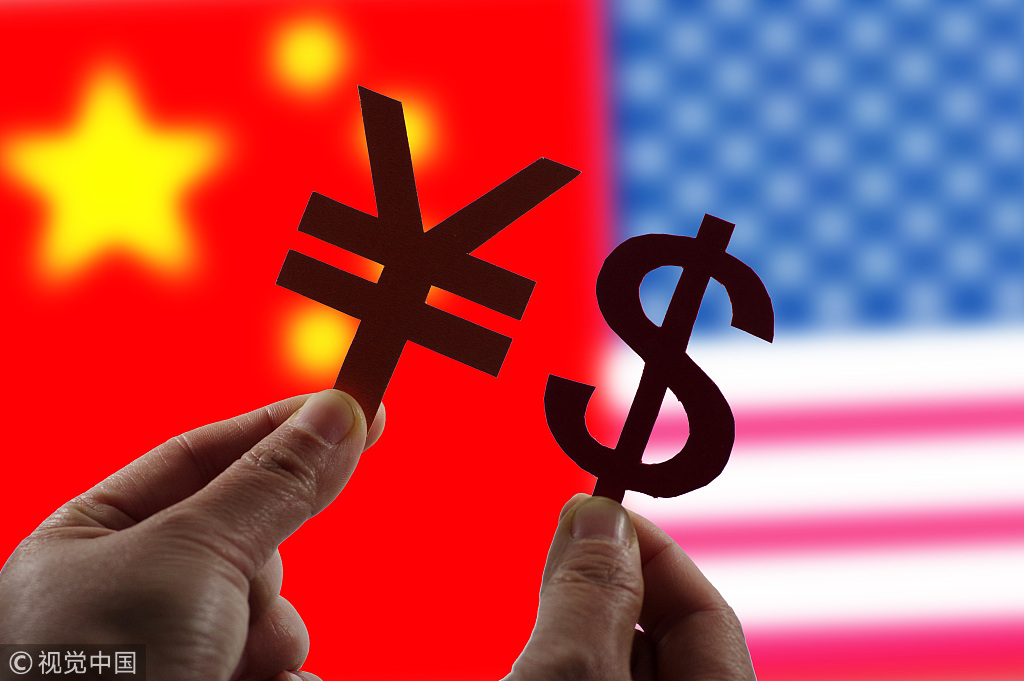US tech companies still eager to do business with China


China's sprawling market and manufacturing prowess continue to appeal to US technology companies despite heightened trade tensions between the countries.
Noluma, a Wilmington, Delaware-based food technology company, is planning a tour of China this fall to introduce its packaging-measurement technology to the dairy industry.
"China is a vibrant market that sets trends globally, and we hope to be a part of this," said Noluma President and CEO Div Chopra. "Their digital and mobile capability has penetrated to higher levels than in the Americas and the EU as well as many other parts of the world. We are learning from the Chinese market."
Chopra said his company's technology can protect probiotic yogurt from indoor light penetration that quickly damages taste and nutrients. The company has formed a partnership with Chinese yogurt company Honest Dairy to introduce products at supermarkets and on e-commerce sites in China.
Chopra said China's rapidly growing middle class increasingly cares about the quality, safety and freshness of the products it consumes, which creates a major growth opportunity for his company.
In contrast to US president's call for US companies to cut ties with China, Chopra said they respect and will work to deepen their Chinese partnerships.
The president has threatened to use emergency authority under a federal law - the International Emergency Economic Powers Act - to "order" US businesses to "immediately start looking for an alternative to China" following China's announcement on Friday that it was raising tariffs on $75 billion in US imports.
He also tweeted on Friday that the US does not need China and would be "better off without China".
On Sunday, however, at the meeting of the G7 Summit industrialized nations in France, he maintained he had the authority to order US companies to leave China, but added: "I have no plan right now. Actually, we're getting along very well with China right now. We're talking."
David Firestein, executive director of the University of Texas' China Public Policy Center, said the US president's statements were "some of the most preposterous and absurd things that he has said as president of the United States. I think people are getting accustomed to the notion that you can't necessarily take seriously or literally every single thing that he says.
"We need China. Don't you doubt it for a second," Firestein said. People in the US "don't embrace" the president's view, he said. "No company in this country feels it would be better off without China."
If a startup like Tensorfield Agriculture left China, not only would it miss out on a huge market but also on a supply source and the ability to quickly manufacture prototypes.
In Shenzhen, the Silicon Valleybased ag-tech company is building robots that kill weeds with heat instead of herbicides. The robot, which provides labor equivalent to the simultaneous efforts of 40 workers, can address the shortage of labor required to weed manually, while US growers are bringing in workers from other countries, according to the company.
"Shenzhen has the fastest and most capable production timelines for prototyping that we've seen anywhere in the world. There is an enormous hardware ecosystem in China," said Xiong Chang, CEO of Tensorfield.
"For a project like ours, we source components from a broad range of industries, including robotics, automotive, custom electronics and custom structural and fluid processing, and these components are available for delivery within 24 to 72 hours (in China) and at a fraction of the cost when compared with other geographies," he said.
The company also benefits from "an unparalleled program" provided by a Shenzhen-based accelerator in bringing hardware prototypes to production, Xiong said.




































